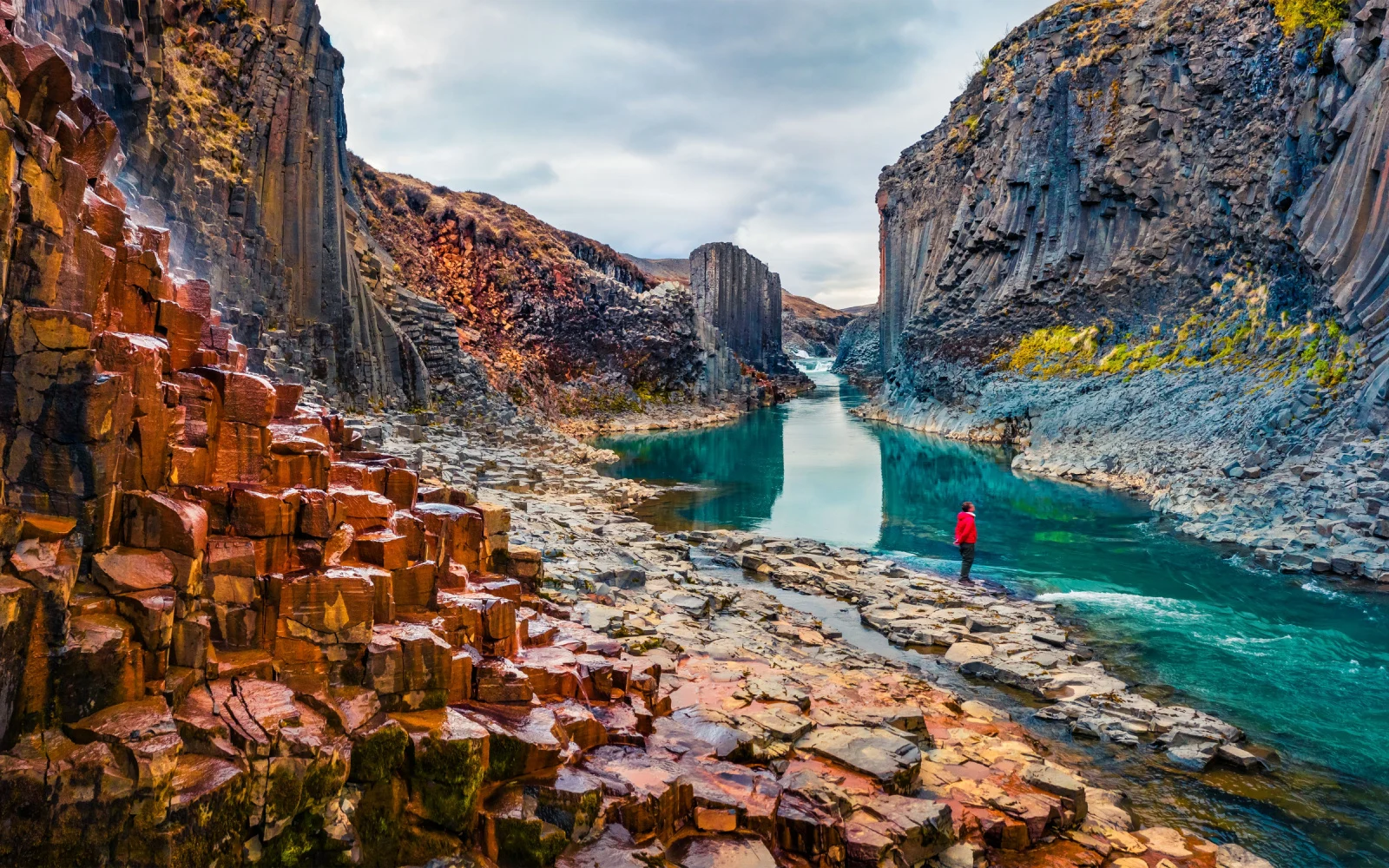Iceland is fast becoming one of the most popular tourist destinations in the world, especially for lovers of nature. The country receives about 1.7 million annual visitors, which is a hefty number when you remember that the population of Iceland is less than 350,000.
Many of the country’s famous sights, such as the Blue Lagoon, the Golden Circle Road trip route, and Faxafloi Bay, are near the capital Reykjavik, Iceland’s only city.
This is a great place to go to check out austere local architecture, learn about the history and nature in fabulous museums such as Perlan, and get a taste of surprisingly lively nightlife and dining scenes.
Make sure that you get away from the capital to check out the austere natural beauty of glaciers, geysers, and other unique Icelandic landmarks.
With so many people visiting the country, it probably isn’t that dangerous. However, it’s always a good idea to double-check safety information before visiting a new place.
This travel guide can help you learn all about potential safety challenges before you visit. Keep reading for more information, including crime information — let us be your guide!
Is Iceland Safe to Visit in 2026?
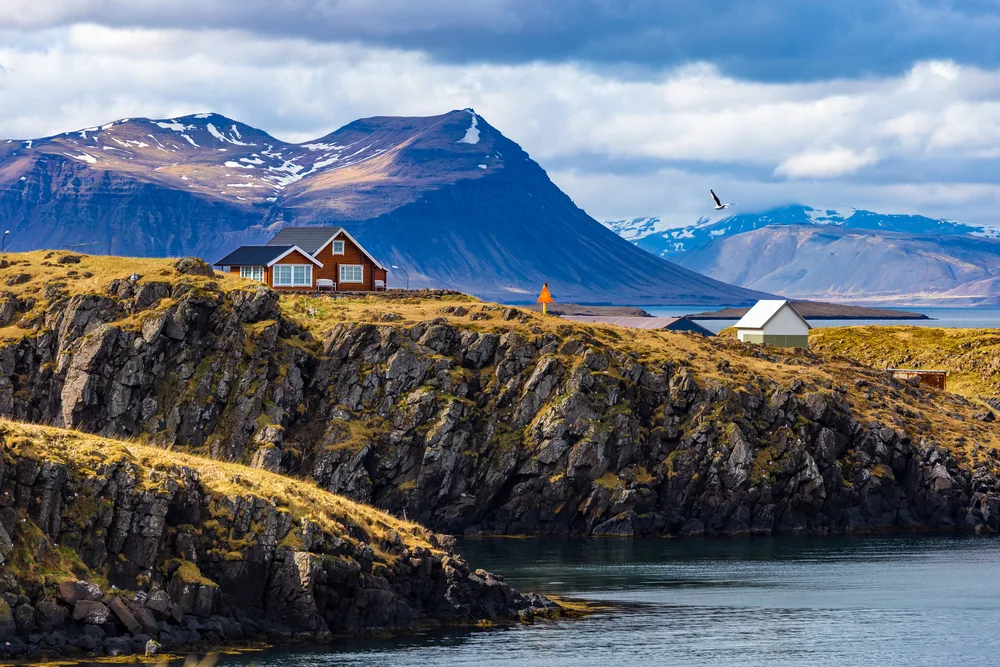
Beketoff/Shutterstock
Yes, Iceland is incredibly safe to visit and to live in! The crime rates in the country are very low, and crimes targeting visitors are almost non-existent.
However, if you are going on adventures in the wilderness, make sure that you take the right precautions to protect yourself. Not only is Iceland an incredibly safe place to visit, but it is also actually the safest country in the world.
The Global Peace Index, a safety measurement tool created by the Institute of Economics and Peace, named Iceland the safest country in the world in its recently released 2023 rankings.
In fact, Iceland has been the safest country in the world ever since the Index first started publishing back in 2008. There are many factors explaining why Iceland is the safest country in the world.
The country has very low crime rates, low rates of militarization, and low rates of societal factors that lead to crime and civil unrest such as income inequality.
Most world governments agree with the assessment that the country is one of the safest countries in the world, which you can tell by their travel advisories. Almost all countries, such as the United States, only issue a Level One travel advisory for Iceland.
This means that travelers only need to exercise normal precautions on their visit. Of course, Iceland experiences some crime, but most crime incidents are petty in nature.
The most likely crimes you might encounter in Iceland include:
- Pickpocketing
- Bag snatching
- Theft of unattended items
- Scams and fraud
- Gang-related activity
The natural world is a far bigger source of concern for visitors and residents of Iceland than other people. The same natural features that made the Icelandic landscape so beautiful, the volcanoes and tectonic plates, also make the country a bit dangerous.
Iceland is a seismically and volcanically active country. Volcanic eruptions, earthquakes, and even tsunamis can happen during your visit.
The good thing is that most volcanic eruptions in Iceland are slow, leisurely affairs. They are even popular tourist attractions!
Just make sure that you follow the advice from authorities, stay well away from the lava, and avoid eruptions if you have respiratory issues. Iceland is located very far north, which means that the weather is unpredictable and can turn polar.
The official Icelandic Association for Search and Rescue has a website that advises tourists on safe travel while navigating the country’s weather conditions. Read the website thoroughly and download the app, which also serves as a location beacon if you get lost while on a hike.
The key to surviving outdoor adventures is preparation and listening carefully. Always look at the weather reports and ask locals for advice before going on a hike.
If they tell you to postpone your trip, listen to them — you don’t know more than someone who’s lived in Iceland for their whole life. Always bring layers and waterproof clothing on a hike as the weather can change in a moment.
Some outdoor activities, such as ice climbing, hiking glaciers, or camping, are more dangerous than regular hikes. The Canadian government warns about the risks associated with adventure travel in its official travel advisory for Iceland.
When going to remote locations or on more dangerous activities, it’s better to go with a guide or a certified tour group than on your own.
Crime in Iceland
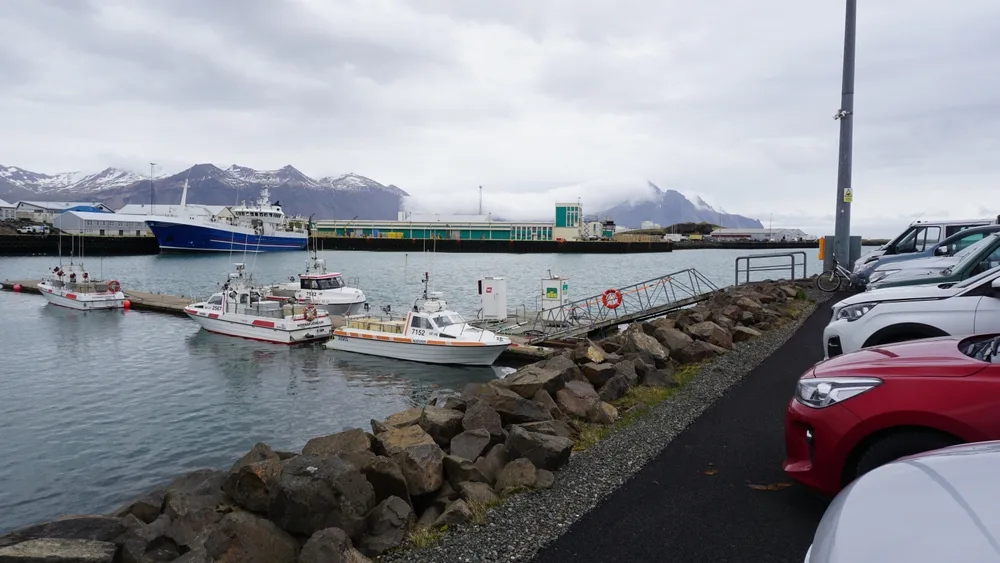
Mario Puskar/Shutterstock
Don’t let the (excellent) crop of crime novels and TV shows set in Iceland fool you; the country is hardly a dangerous place full of hardened killers.
In fact, it has one of the lowest crime rates in the world. According to Icelandic police, the annual crime rate is just 2,127.4 incidents per 10,000 people. Iceland has one of the lowest crime rates in Europe.
For reference, 2020 shocked the country with a surprising spate of murders. The number of homicides committed that entire year? Just five, a massive number compared to normal years of just one or two incidents.
Most years, the homicide rate in Iceland is less than one incident per 100,000 people. Most violent incidents, when they happen, are linked to organized crime or other personal disputes between the victim and murderer.
Random violence, especially against tourists, is extremely rare. The most common crimes in Iceland are petty offenses. According to local police statistics, the most common offenses are traffic violations, followed by crimes.
The most common crime is petty theft, which saw 3,500 incidents in 2020. All these statistics tell us that Iceland is a very safe country for visitors.
While you should take some precautions against crime, especially against prevalent petty theft, you don’t need to be on your guard constantly as dangerous, violent incidents are extremely rare.
Even petty theft rates are much lower than in other popular European destinations. If you are worried about crime, then Iceland is one of the best choices for a European vacation.
Petty Theft
Petty theft is the most likely crime you might encounter. Petty theft is one of the most common forms of theft worldwide. Even countries with low crime rates, such as Iceland, cannot eliminate it completely.
Thieves in Iceland and in other popular tourist destinations often target tourists because they know they have less street smarts than locals and are more likely to be carrying around all of their valuables, such as passports.
Keep in mind that you are a likely target for the country’s few thieves. These are common around Iceland’s popular tourist destinations such as the Blue Lagoon locker rooms.
Theft is most common in Reykjavik, which makes sense because this is the country’s only city with the biggest population and the most visitors.
The Australian government warns in its travel advisory that theft is most common around bars in Reykjavik, where thieves try to take advantage of inebriated guests. Basic precautions are usually enough to deter Iceland’s pickpockets.
Make sure that your valuables are never unattended or easy to access, such as hanging off the back of your chair or in an open purse. If you have to leave your items unattended, such as in a pool or lagoon changing room, make sure that you lock them in a locker room.
Scams sometimes happen. Always research before reserving a rental car, accommodation, or tour package that the company you are booking with has a good reputation.
Be careful when buying souvenirs, such as wool sweaters, as vendors sometimes pass off mass-produced items as local handicrafts and charge ludicrous prices.
Gang-Related Offenses
Recently, Iceland has had a few violent crimes, such as the shocking murder of an Albanian immigrant in front of his home in 2021. However, most violent incidents in the country are linked to organized crime.
Unfortunately, there is a growing organized crime presence in Iceland. Organized crime operators are local Icelanders or often foreign operators.
The Icelandic government is cracking down on organized crime, including on groups that are involved in drug trafficking, money laundering, and organizing low-level crimes such as thefts and burglaries.
Although it is unlikely that gang-related crimes will affect you, since most gangs focus their violent attacks on rival gang members in fights over territory, but some governments, such as the UK government, include warnings about gang activity in their travel advisories.
There have been some incidents that affected passersby, such as a knife fight in a popular Reykjavik club. The only place where you as a visitor might come in contact with organized crime is in sketchy bars or nightclubs in Reykjavik.
Before checking out the local nightlife, do some research and ask your local acquaintances about places with bad reputations. Trust your instincts and if a situation seems to be escalating, focus on getting out of the area as soon as possible.
Avoiding Bad Areas
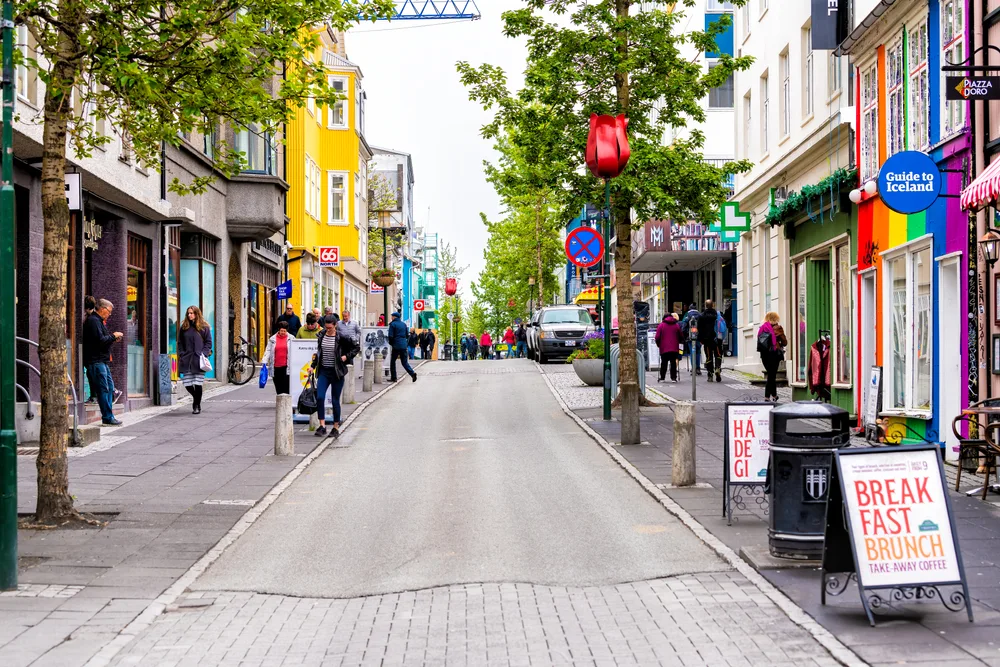
Reykjavik, Iceland – June 19, 2018: Laugavegur shopping street road sidewalk in downtown center and signs for stores shops and tourist guide/Andriy Blokhin/Shutterstock
Iceland is a country with a small population and an extremely low crime rate. This means there are no places in the country that are dangerous and that you should avoid completely.
However, there are some places where you might want to exercise some additional caution. Downtown Reykjavik’s nightlife areas have higher crime rates as thieves take advantage of inebriated people and other crimes may occur.
These nightlife areas include:
- Laugavegur
- Bankastraeti
- Austurstraeti
Breidholt is a Reykjavik neighborhood with an elevated crime rate, but it is far away from the city center and it is unlikely that you will wander there by accident.
Things to Consider
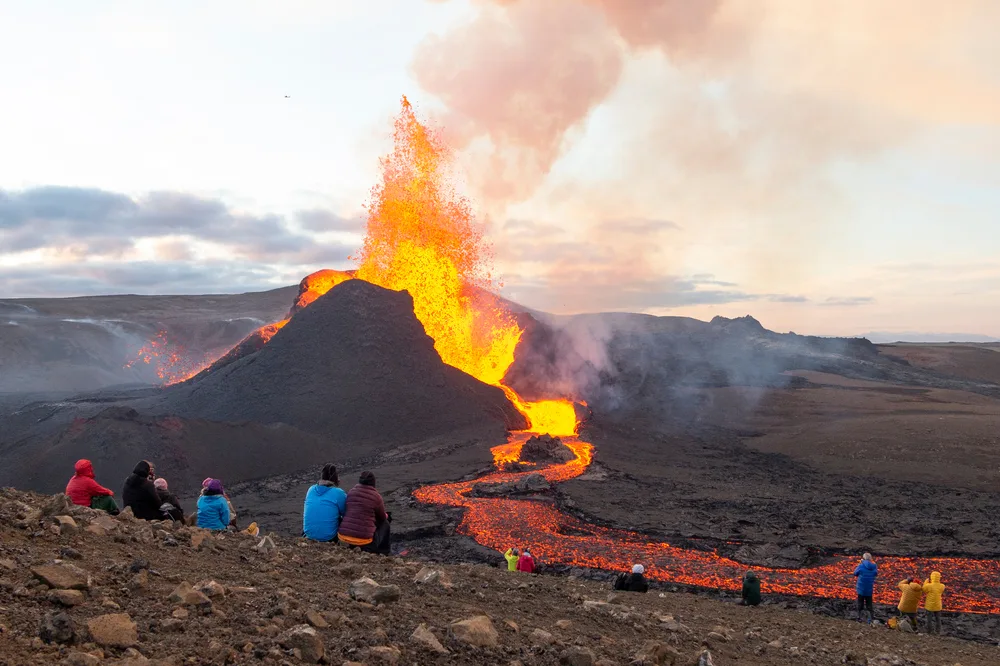
GELDINGADALIR, ICELAND – MAY 11, 2021: A small volcanic eruption has started at the Reykjanes peninsula. The event has attracted thousands of visitors who have braved a daring hike to the crater/Thorir Ingvarsson/Shutterstock
Here are a few additional safety tips for visiting Iceland:
- Follow alerts about volcanic eruptions. The lava is not the most dangerous part, but the clouds of ash and gas, which might worsen your symptoms if you have respiratory diseases such as asthma. Try to stay indoors and away from volcanic eruptions if one happens.
- Be careful when driving. Roads between towns are often long and not maintained the best due to weather conditions. Switch to winter tires between November and April as it is the law. Don’t speed as road conditions can change rapidly.
- Be careful when hiking. Always take extra provisions and clothing in case you get lost. Always let someone know where you are going and take a GPS locator with you.
- Stay away from the edge. Don’t get too close to geysers, hot springs, or cliffs hanging over the ocean as falling can be deadly.
Frequently Asked Questions
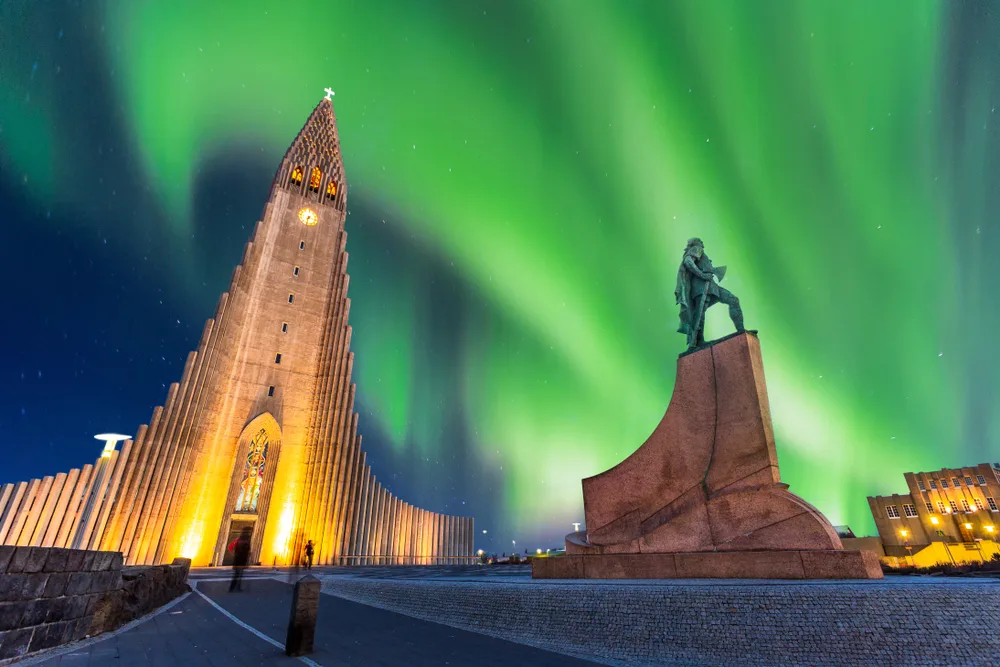
Basiczto/Shutterstock
Here are some common questions that you might want answered about visiting Iceland:
Is Reykjavik safe to walk at night?
Reykjavik is safe to walk at night! However, take basic precautions such as sticking to well-lit streets and avoiding areas that you know are sketchy. The area around the main bars is always packed with people, but it can get rowdy late at night.
Do they speak English in Iceland?
The official language in Iceland is Icelandic. However, almost every local speaks English as a second language because it is taught in local schools.
Is it expensive to go to Iceland?
Iceland is hard to experience as a budget traveler because it is fairly expensive to visit. Certain items such as food and restaurant meals cost a lot because many ingredients have to be imported.
Why is Iceland low crime?
Iceland has a low crime rate for a few different reasons. The country doesn’t have many societal factors that contribute to high crime rates, such as income inequality and high unemployment rates. The government is quick to react with social welfare policies and combating crime when it needs to.
Can you wear jeans in Reykjavik?
Of course you can wear jeans in Reykjavik. The temperature is surprisingly mild all year round, thanks to the Gulf Stream. However, on adventure activities outside of Reykjavik, it’s a good idea to wear appropriate clothing such as hiking pants, rain pants, or fleece-lined pants.
So, Is Iceland Safe to Visit?
Iceland is one of the safest countries to visit in the world, thanks to its very low crime rate. However, you need to take precautions if you are going on risky activities such as backcountry hiking or climbing glaciers, the country’s nature is more dangerous than other people.
So, with so much to see and do and a very safe environment, what are you waiting for — book your trip today and experience for yourself all that Iceland has to offer. Happy travels!



